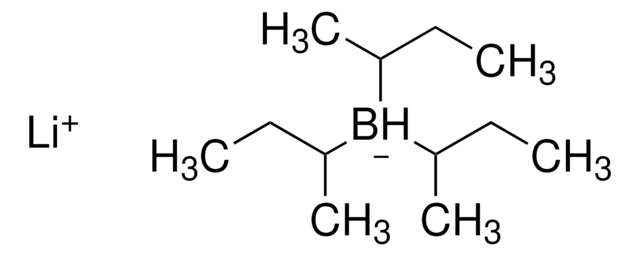Wichtige Dokumente
205141
Praseodymium(III)-chlorid Hydrat
99.9% trace metals basis
Synonym(e):
Praseodymium Trichloride Hydrate, Praseodymium chloride hydrate, Praseodymium(3+) Trichloride Hydrate, Trichloropraseodymium hydrate
About This Item
Empfohlene Produkte
Qualitätsniveau
Assay
99.9% trace metals basis
Form
solid
Eignung der Reaktion
reagent type: catalyst
core: praseodymium
Verunreinigungen
≤1500.0 ppm Trace Rare Earth Analysis
Dichte
2.25 g/mL at 25 °C (lit.)
SMILES String
O.Cl[Pr](Cl)Cl
InChI
1S/3ClH.H2O.Pr/h3*1H;1H2;/q;;;;+3/p-3
InChIKey
BQRCNEKQNZWNCY-UHFFFAOYSA-K
Allgemeine Beschreibung
Anwendung
Signalwort
Warning
H-Sätze
Gefahreneinstufungen
Eye Irrit. 2 - Skin Irrit. 2 - STOT SE 3
Zielorgane
Respiratory system
Lagerklassenschlüssel
11 - Combustible Solids
WGK
WGK 2
Flammpunkt (°F)
Not applicable
Flammpunkt (°C)
Not applicable
Persönliche Schutzausrüstung
dust mask type N95 (US), Eyeshields, Gloves
Hier finden Sie alle aktuellen Versionen:
Besitzen Sie dieses Produkt bereits?
In der Dokumentenbibliothek finden Sie die Dokumentation zu den Produkten, die Sie kürzlich erworben haben.
Kunden haben sich ebenfalls angesehen
Artikel
The rare earth elements impact nearly everyone in the world. All of the people living in advanced technological countries and almost all those living in third world countries utilize the rare earths in their everyday living—the car that one drives (gasoline is refined from oil using rare earth catalysts and catalytic converters reduce the polluting emissions from the automotive exhaust), watching the news on TV (the red and green colors in TV screens), the telephones and computers we use to communicate (the permanent magnets in speakers and disc drives), just to name a few examples.
Unser Team von Wissenschaftlern verfügt über Erfahrung in allen Forschungsbereichen einschließlich Life Science, Materialwissenschaften, chemischer Synthese, Chromatographie, Analytik und vielen mehr..
Setzen Sie sich mit dem technischen Dienst in Verbindung.

